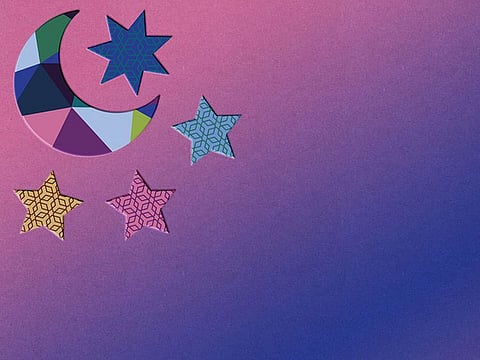This Ramadan we must act for others
In our fight against Covid-19, we cannot afford to let the guard down

Ramadan is almost upon us once more and, for the second year in succession, the normal activities associated with the holy month of fasting will change as a result of coronavirus. While we have almost emerged from the pandemic and vaccination programmes across the UAE are in full swing and highly effective, this is not the time to let our guard down.
On Wednesday, Dubai issued new mandatory guidelines for praying in mosques and for gatherings. Similar provisions are in place in Abu Dhabi as well as the rest of the UAE — all with the intent of keeping us safe and ensuring that the best public health protocols are enacted to prevent this insidious virus from flaring up once more.
Ramadan is indeed a time of reflection and community service — and for now that means staying apart and enjoying the limited opportunities afforded as a result of this pandemic. And yes, there is always next year.Gulf News
Mosques will remain open from the time of Azan, the call to prayer, until the end of obligatory prayer and will then close. Under the provisions, the duration of Isha and Taraweeh prayers in mosques will be limited to 30 minutes, and Isha prayers will be held five minutes after the azan.
Under these measures, praying alone after the main prayers is not permitted, and all worshippers must wear face masks and bring their own prayer mats, individual Korans or use an app.
No super-spreader events
It needs to be stressed that these measures are temporary and necessary to ensure that mosques and large gatherings do not become incubators or super-spreader events that would undermine the progress we have all made over these months against coronavirus.
As part of the new measures, mosques must undergo regular sanitation and provide separate entry and exit points, while physical-distancing measures must also be in place. For now, seminars and lectures at mosques, so much a part of Ramadan’s past, are suspended. But worshippers have of course, the option of logging on to online seminars so that the joy of Ramadan can be shared as before.
A time for reflection
For now too, Iftars and the sharing of food at mosques must be suspended. Yes, these traditions are held in deep esteem and we all look forward to next year when they can resume. For now, however, the potential threat of Covid-19 makes this practice unwise, and therefore suspended.
Now also is not the time to greet each oter with handshakes. We must remember to practise our safe distancing and ensure that we all play our part in keeping each other safe.
Ramadan is indeed a time of reflection and community service — and for now that means staying apart and enjoying the limited opportunities afforded as a result of this pandemic. And yes, there is always next year.








